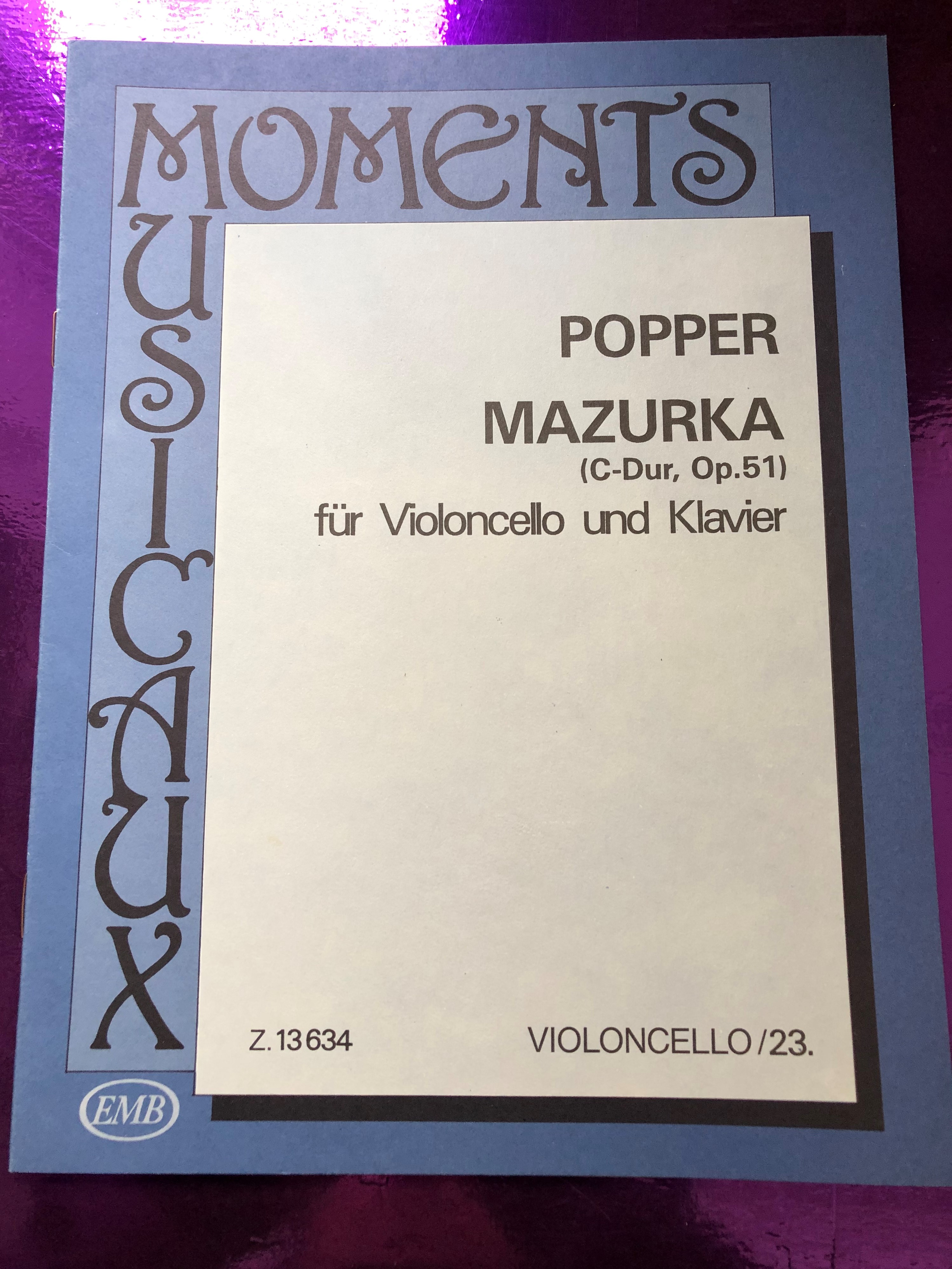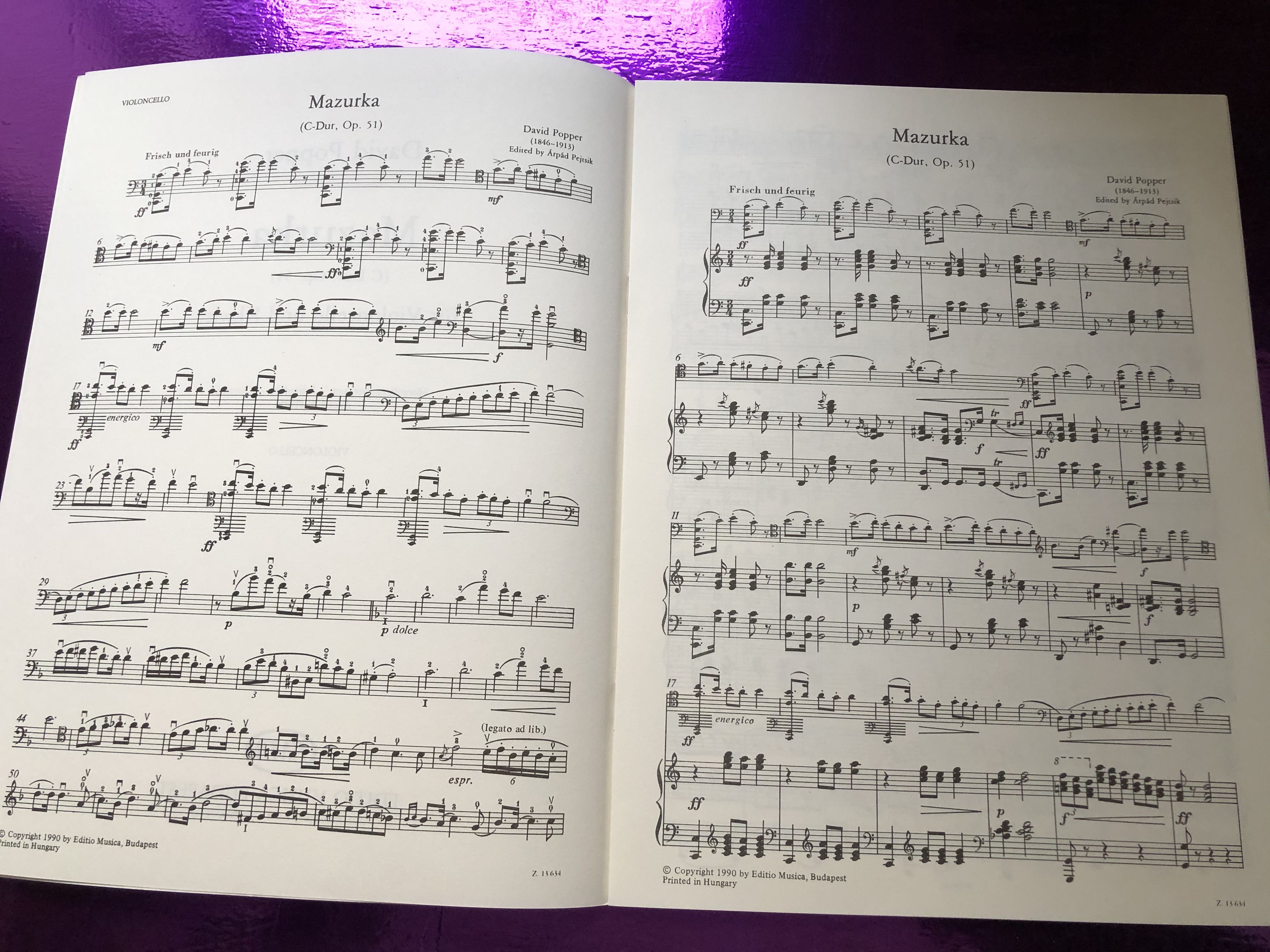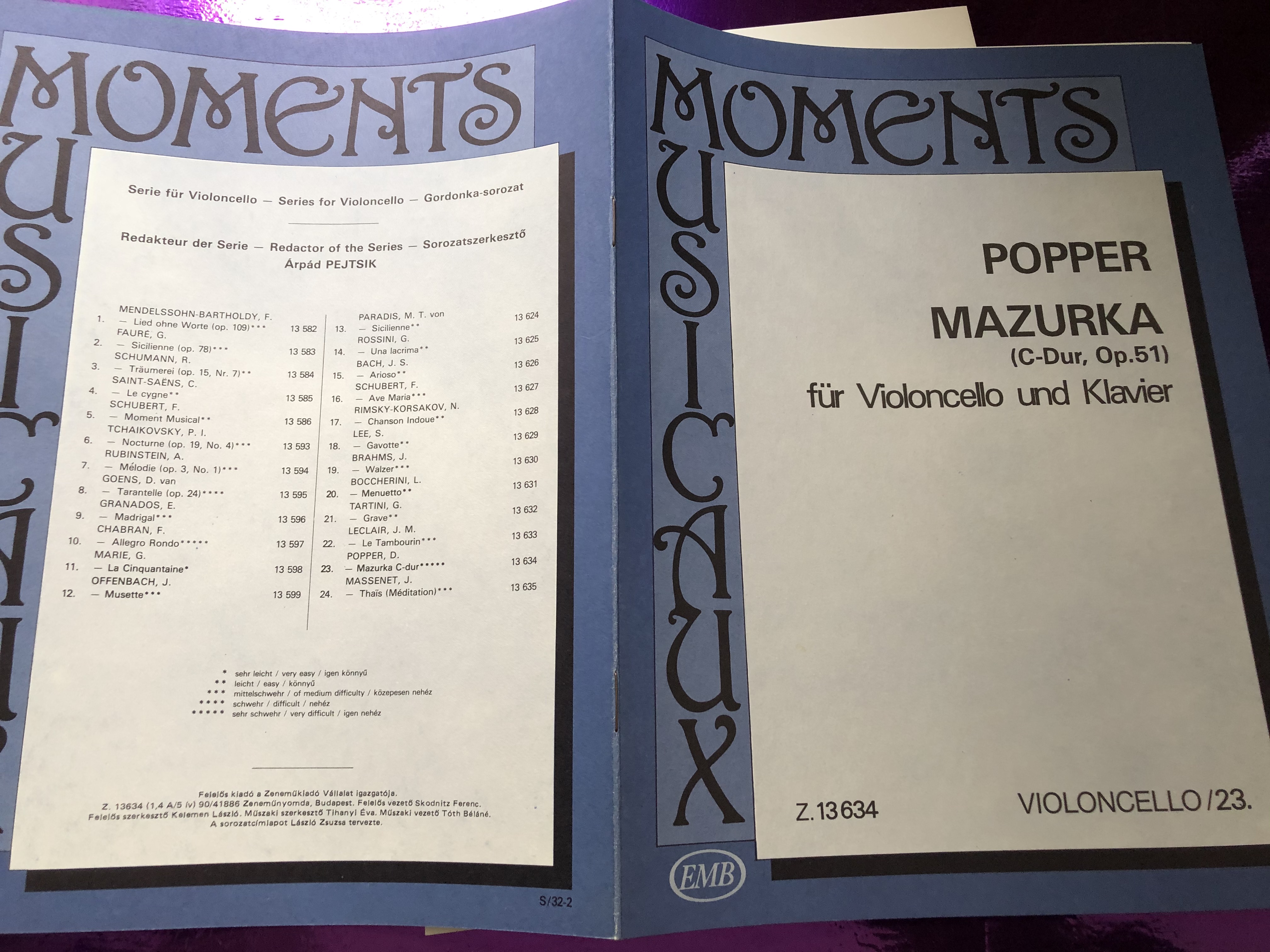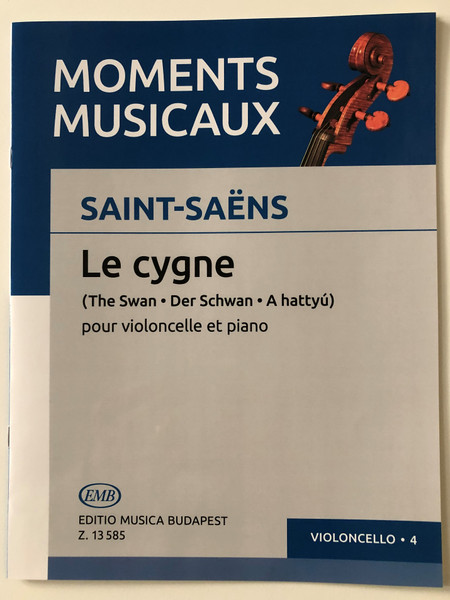Description
Popper – Mazurka (C Major, Op. 51) for Cello and Piano
Edited by Árpád Pejtsik | Editio Musica Budapest
Product Information / Produktdetails
- Title / Titel: Mazurka (C-Dur, Op. 51) für Violoncello und Klavier
- Composer / Komponist: David Popper
- Editor / Herausgeber: Árpád Pejtsik
- Series / Reihe: Moments Musicaux / Gordonka Sorozat
- Product Type / Produkttyp: Sheet Music / Notenbuch
- Format / Format: Paperback / Broschiert
- Publication Year / Erscheinungsjahr: –
- Pages / Seitenzahl: 7
- Language / Sprache: German (Deutsch)
- Publisher / Verlag: Editio Musica Budapest
- ISBN: 9790080136348 / 979-0080136348
- Catalog Number / Katalognummer: Z. 13634
Overview / Überblick
English:
David Popper’s Mazurka in C Major, Op. 51 is a charming and technically engaging piece for cello and piano, brought to life in this edition by renowned editor Árpád Pejtsik. Part of the Moments Musicaux series, this work is perfect for intermediate and advanced cellists looking to refine their expressive phrasing and virtuosic technique.
German / Deutsch:
David Poppers Mazurka in C-Dur, Op. 51 ist ein bezauberndes und technisch anspruchsvolles Werk für Violoncello und Klavier, das in dieser Ausgabe von dem renommierten Herausgeber Árpád Pejtsik herausgegeben wurde. Als Teil der Moments Musicaux-Reihe eignet sich dieses Stück hervorragend für fortgeschrittene Cellisten, die ihre Ausdruckskraft und Virtuosität weiterentwickeln möchten.
Product Features / Produktmerkmale
✅ Classic Repertoire / Klassisches Repertoire – A well-known work by Popper, suitable for concerts and recitals. / Ein bekanntes Werk von Popper, ideal für Konzerte und Vorspiele.
✅ Edited by Árpád Pejtsik / Herausgegeben von Árpád Pejtsik – Expert editing ensuring musical and technical clarity. / Fachkundige Bearbeitung für musikalische und technische Präzision.
✅ Part of the Moments Musicaux Series / Teil der Moments Musicaux-Reihe – A collection of important pieces for cello. / Eine Sammlung bedeutender Stücke für Violoncello.
✅ High-Quality Edition / Hochwertige Ausgabe – Published by Editio Musica Budapest with clear notation. / Hochwertige Notenausgabe mit klarer Notation von Editio Musica Budapest.
Interesting Facts / Wissenswertes
About David Popper / Über David Popper
English: David Popper (1843–1913) was a Bohemian cellist and composer, known for his virtuosic works for the cello. His music remains a staple in the cello repertoire today.
German / Deutsch: David Popper (1843–1913) war ein böhmischer Cellist und Komponist, bekannt für seine virtuosen Werke für das Violoncello. Seine Musik ist bis heute ein fester Bestandteil des Cellorepertoires.
Mazurka in Classical Music / Die Mazurka in der klassischen Musik
English: Originally a Polish folk dance, the mazurka was adapted by many classical composers, including Chopin and Popper, to create lively and expressive musical pieces.
German / Deutsch: Ursprünglich ein polnischer Volkstanz, wurde die Mazurka von vielen klassischen Komponisten, darunter Chopin und Popper, adaptiert und zu lebhaften, ausdrucksstarken Musikstücken verarbeitet.
Publisher / Verlag
Editio Musica Budapest – ISBN: 9790080136348
We value your feedback! Share your thoughts and experiences. / Ihre Meinung ist uns wichtig! Teilen Sie Ihre Erfahrungen mit uns.
Hashtags / Hashtags
#DavidPopper #Mazurka #CelloMusic #EditioMusicaBudapest #ÁrpádPejtsik #CelloSheetMusic #MomentsMusicaux























